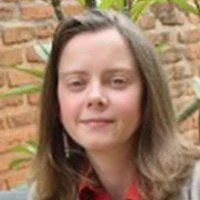Misaligned Public Policy?
Understanding the disconnect between popular demands and the orientations of domestic policy-makers in Post-revolutionary Sudan.
In their first project, Understanding Legitimacy in Post-Revolutionary Sudan, Dr Muez Ali and Dr Laura Mann set out to understand the extent of Western donor influence on social policy during the political transition in Sudan by looking at how Sudan's cash transfer programme was conceptualised. They found that the cash transfer programme was a Sudanese idea for which the government then rallied support from donors. The findings pointed to deeper, historical processes of cognitive dissonance and ideological assimilation among Sudan's professional elite.
We want to understand the degree of alignment between popular perceptions and demands and professional orientations
Given these findings, it seems natural to investigate one of the consequences of the gap between the Sudanese professional elite and the realities on the ground. One major consequence has been an increase in the activity and influence of neighbourhood resistance committees. These committees, identified by journalists and political analysts as a new source of public authority operating at the neighbourhood level, play an essential role in many aspects of everyday life. They organise queues at petrol stations and source and distribute bread and cooking gas during shortages. They also played a role in registering people for Sudan's most recent cash transfer programme (the subject of the first project). In addition to organising and sustaining a relentless opposition to the 25 October coup through weekly protests across the country, their recent endeavour into politics through the Charter for the Establishment of the People's Authority makes them the most influential player in Sudanese politics.
And yet, neighbourhood resistance committees have not been studied in a systematic way. This project moved this research forward in two inter-connected ways:
- First, they scrutinised how these resistance committees were formed (across neighbourhoods and cities), the motivations of members of these committees, the variations in their understanding of social policy priorities across neighbourhoods and states, and how their environments (both natural and social) shaped their priorities and activities.
- Second, they built a database of domestic policymakers, specifically capturing data about their education and career backgrounds, through a combination of LinkedIn surveying and other sources. A second round of interviews was carried out, with selected policymakers comparing how their understandings and priorities compare with those expressed by resistance committees. This probed how their educational training and professional incentives have contributed to their beliefs and approaches to public policy.
Overall, the aim was to understand the degree of alignment between popular perceptions and demands and professional orientations.
Researchers

Dr Laura Mann
Laura Mann is an associate professor interested in the emergence and developmental benefits of ‘markets’ in low- and middle-income countries and how technological changes are restructuring markets and requiring policy-makers to re-imagine their developmental strategies. She completed her PhD at the University of Edinburgh and then worked as a postdoctoral research at the Oxford Internet Institute at the University of Oxford and the Centre of African Studies at the University of Leiden, before joining LSE as an Assistant Professor in 2014.
Email: L.E.Mann@lse.ac.uk

Dr Muez Ali
Dr Muez Ali is a development economist interested in energy and economic development, the political economy of climate change and knowledge production in developing countries, specifically Sub-Saharan Africa. He completed his PhD at UCL's Bartlett School of Environment, Energy and Resources. While doing his PhD, he was a Researcher at the Ministry of Finance in Sudan and a Research Associate at CPAID. He is currently a Research Associate at Earthna: Center for a Sustainable Future in Doha, Qatar.